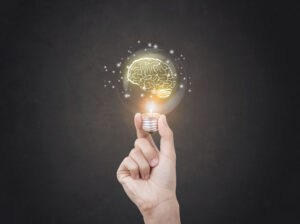The difference between the age we “feel” and age written on our birth certificates can be quite large. Many of us feel younger than our actual age, almost as if we got “stuck” at some age and ceased growing.
But does it really matter how old we feel when we talk about health? In other words, is there a connection between how old we feel and our physical brain function?
Surprisingly, a study published in June 2018 in the academic journal "Frontiers in Aging Neuroscience" shows that this is, indeed, the case.
Researchers in the study have found a connection between people's physiological function and the age they “feel”, also called their “subjective age”.
Adults who felt younger than their age showed fewer physical signs of brain maturation than those who felt their age or older.
We tend to think of maturation and aging as an ongoing process in which the body and brain both change gradually with time.
While the passing of time affects us all, it affects people in different ways.
Subjective age varies between people when some feel younger than their objective age while others feel older.
Researchers at Seoul National University seek to understand whether subjective age reflects only an inner feeling or if it is also related to physical factors.
In order to answer this question, they examined the character traits, physical abilities, and mental tendencies of adults. In addition, they conducted many physical tests, including an MRI brain scan.
The findings showed that the brains of people who feel younger than their objective age tend to have younger physiological characteristics, as well. In other words, an 80-year-old man who feels 60 years old will have a brain similar to a 60-year-old man’s.
Why is that?
One hypothesis the researchers have suggested is that people who biologically mature slowly, meaning those whose brains remain 'younger' than their objective age, are the ones who also feel younger. Therefore, these are the people who experience the mismatch between their inner feeling and their objective age.
In other words, our subjective age may actually reflect the physical state of our brain.
On the other hand, it is very likely that people who feel younger also have a more mentally and physically active lifestyle. Physical activity and mental challenge each contribute to improving the functioning of the body and brain, and thus can also affect the characteristics of age that are seen in the physiological structure of the brain.
At the moment, it is impossible to know which of the two explanations is correct. And of course, there may be other explanations that have not been taken into account. But however we look at it, the finding of the connection between the biological age of the brain and subjective age is nothing short of astonishing. This instills hope that actions can be taken to improve brain functions.


